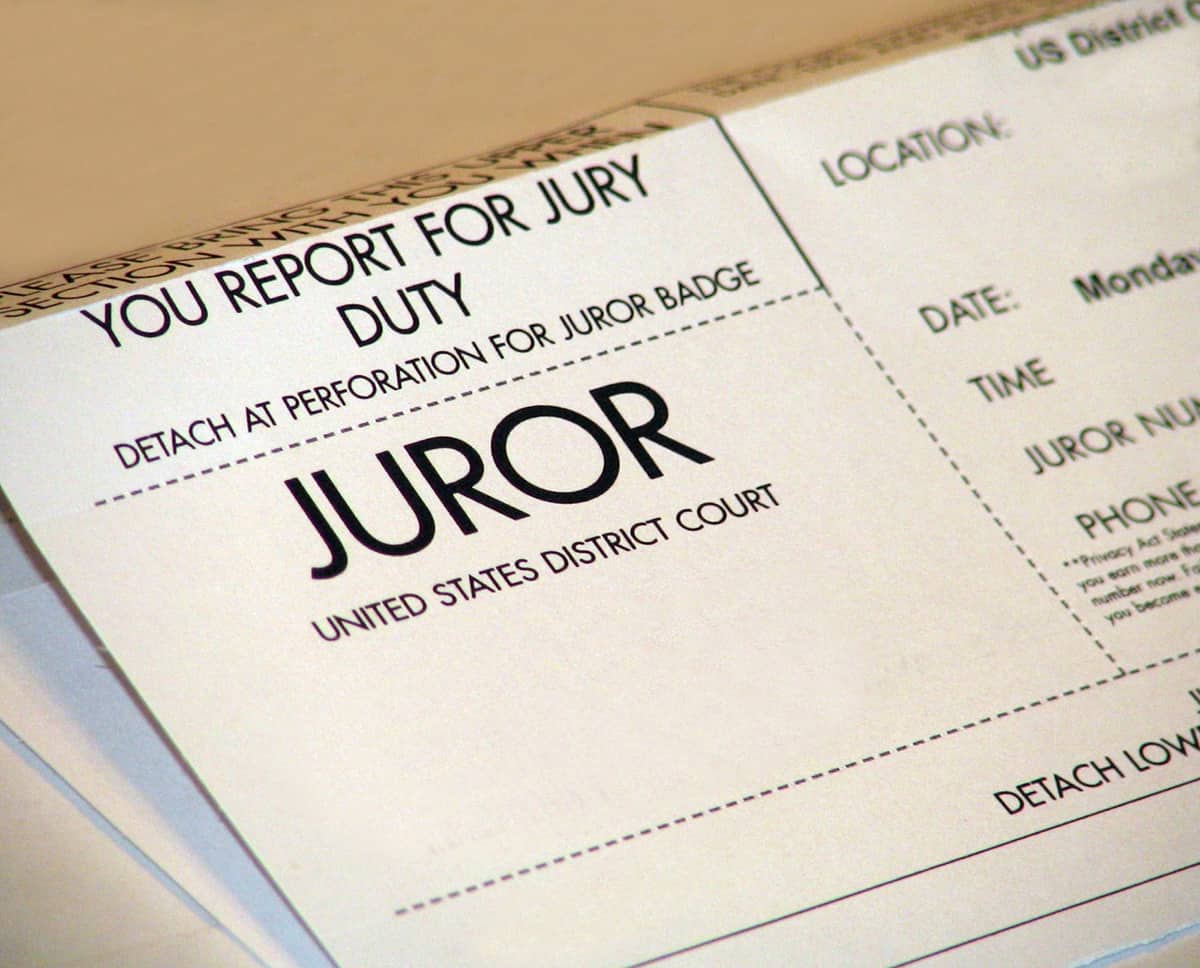In State v. Talbott, the WA Supreme Court held that at trial, a defendant may not appeal the seating of a juror if the defendant could have struck that juror with a peremptory challenge.
FACTUAL BACKGROUND
In 2018, Mr. Talbott was arrested and charged with two counts of aggravated first degree murder that occurred in 1987. The victims – Jay Cook and his girlfriend Tanya Van Cuylenborg – were a couple visiting from Canada. Their bodies were found in Snohomish County and Skagit County, respectively. Van Cuylenborg’s body displayed evidence of sexual assault. Despite a multicounty law enforcement effort to solve the murders, no arrests were made. It was not until 30 years later that law enforcement, with the assistance of a genealogist, identified Mr. Talbott as the source for DNA that was collected in 1987.
Jury Selection At Trial
During voir dire, Talbott moved to excuse juror 40 on a challenge for cause. A challenge for cause is a request to disqualify a potential juror for specific reasons. Typical reasons include an acquaintanceship with either of the parties. It also includes a juror’s prior knowledge that would prevent impartial evaluation of the evidence presented in court, bias, prejudice, or an inability to serve (such as being seriously mentally ill)
The judge denied the defendant’s motion to challenge juror 40 for cause. At the end of voir dire, the court provided both parties the opportunity to raise any additional for-cause challenges. However, both parties – the State and Defense Counsel – declined.
The parties then exercised peremptory challenges. This is one of a limited number of special jury challenges given to each party before trial. A peremptory challenge results in the exclusion of a potential juror without the need for any reason or explanation – unless the opposing party presents a prima facie argument that this challenge was used to discriminate on the basis of race, ethnicity, or sex.
After the State exercised its first peremptory challenge, juror 40 moved into the jury box. Talbott never attempted to use a peremptory challenge to remove juror 40. He affirmatively accepted the panel after exercising only four of his six peremptory challenges. Talbott had at least two additional peremptory challenges that he did not use on any prospective juror. Thus, Talbott explicitly agreed to be tried by a jury that included juror 40.
Talbott was convicted and sentenced to two consecutive terms of life in prison without the possibility of parole. He appealed, contending, among other things, that the seating of juror 40 violated his right to a fair trial by an impartial jury.
COURT’S ANALYSIS & CONCLUSIONS
WA Supreme Court Justice Mary Yu wrote the Court’s majority opinion, which was agreed to unanimously by the other justices.
Justice Yu began opined that criminal defendants have the constitutional right to a fair and impartial jury. However, the burden of preventing trial errors rests squarely upon counsel for both sides. State v. Farley. Therefore, even defense counsel in a criminal case must attempt to correct errors at trial, rather than saving them for appeal in case the verdict goes against them.
Next, the Court raised and dismissed Talbott’s legal arguments regarding peremptory challenges and long history of precedent cases on the issue. First, the Court rejected Talbott’s argument that State v. Clark should have been rejected in light of State v. Fire.
“He is incorrect,” wrote the Court. “Fire did not overrule Clark. The two cases address different scenarios because the appellant in Fire exhausted their peremptory challenges and the appellant in Clark did not.” Moreover, the Court wrote that the holdings of Clark and Fire were consistent with each other. It is only in dicta that the opinions seem to contradict one another. “It is this dicta in Fire that has created some confusion and uncertainty in this area of the law,” said Justice Yu.
“Thus, we take this opportunity to clarify that a party who does not exhaust their peremptory challenges and accepts the jury panel cannot appeal the seating of
a particular juror.” ~Justice Mary Yu, WA Supreme Court
My opinion? Justice Yu issued a straightforward and academic ruling. A party may not appeal the seating of a juror if the party could have struck that juror with a preemptory challenge. Parties are obliged to use their preemptory challenges to strike jurors they unsuccessfully moved to excuse for cause. Finally, it appears that a party may only appeal the jury’s composition if the party exhausted their preemptory challenges.
The take-away? Exercise your peremptory challenges at trial.
Please contact my office if you, a friend or family member are charged with a crime. Hiring an effective and competent defense attorney is the first and best step toward justice.















